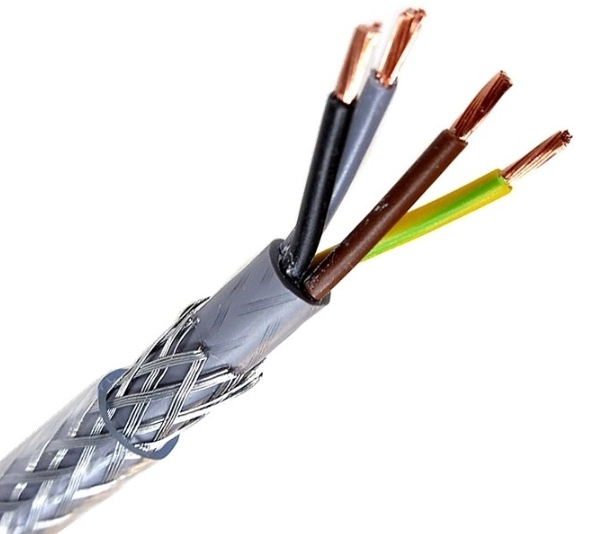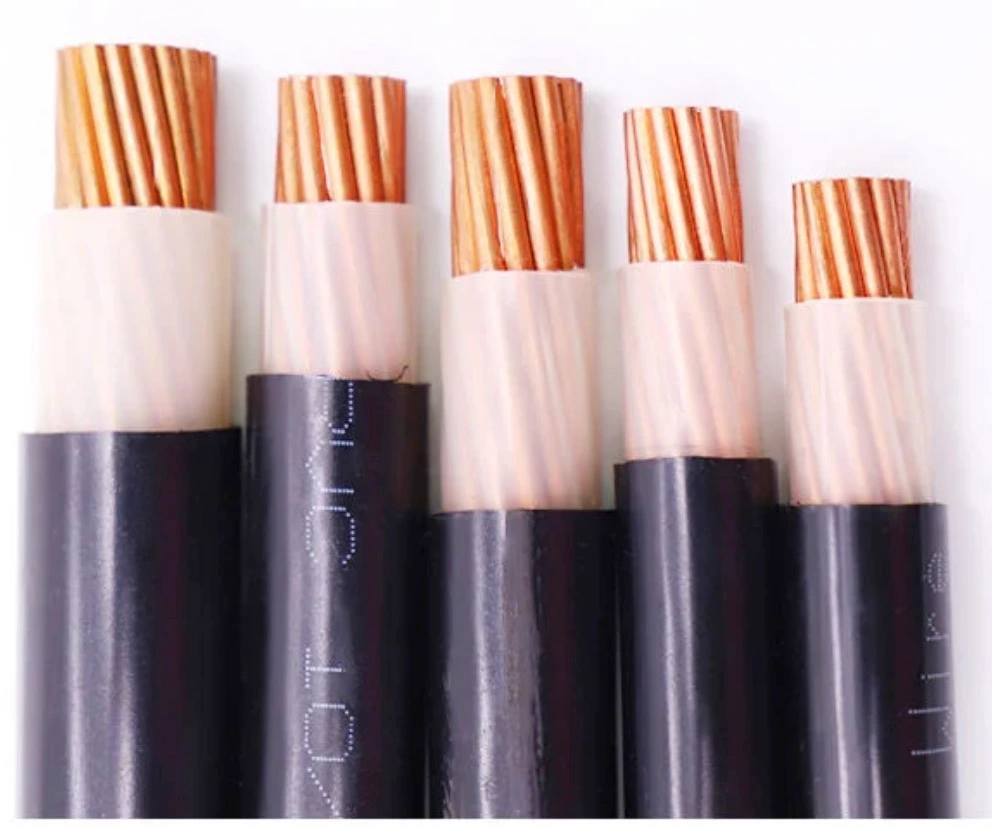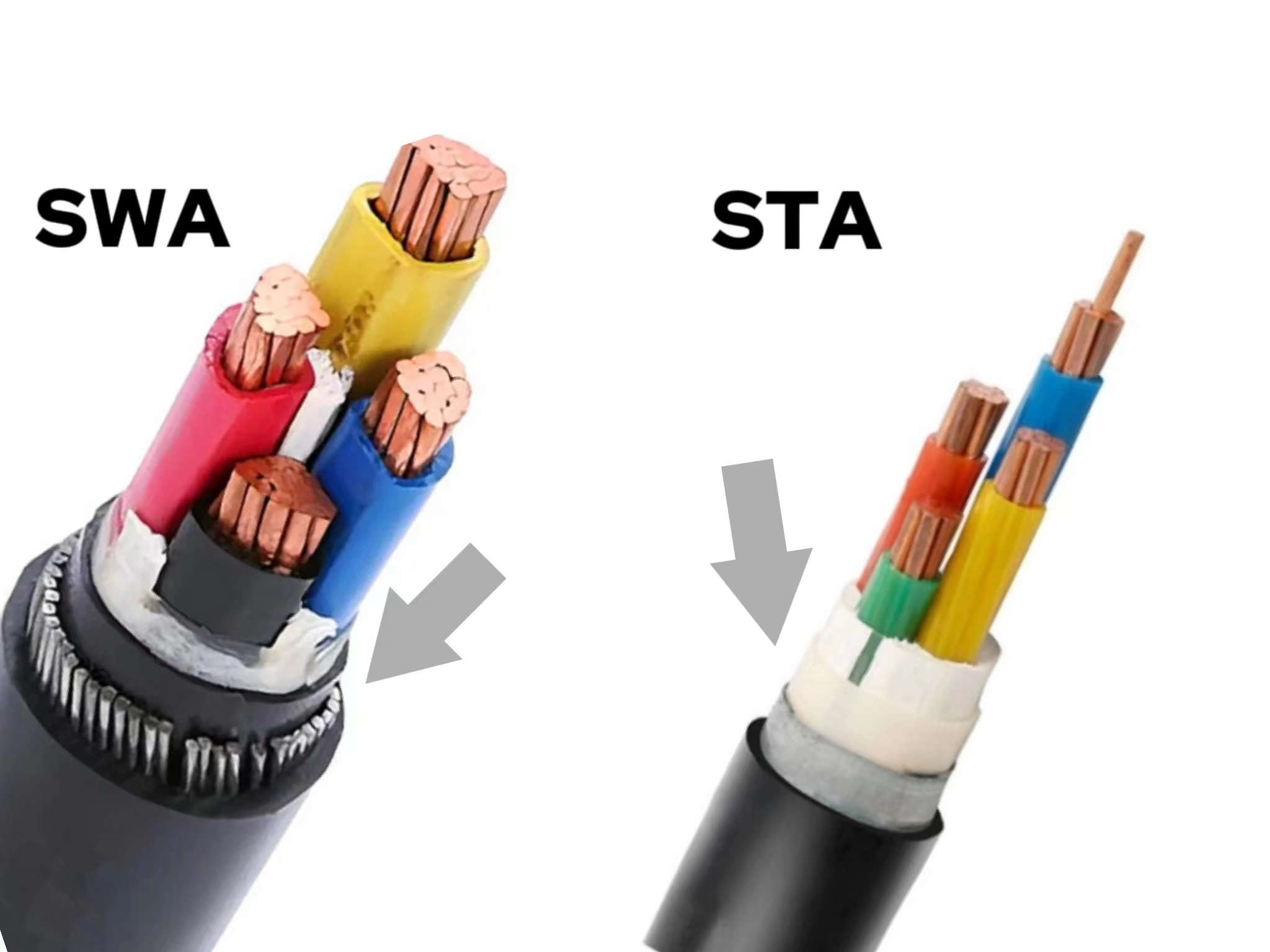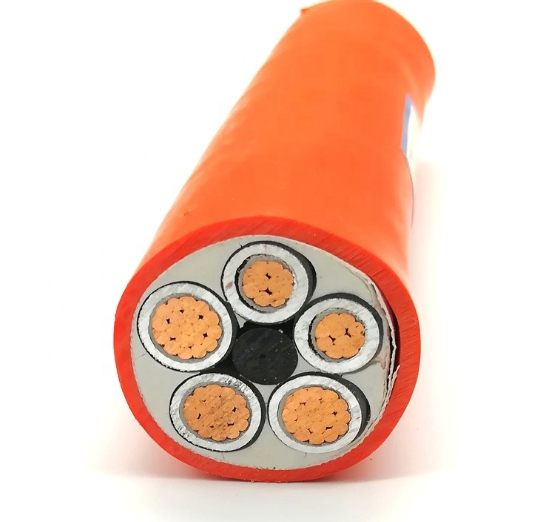When tackling a wiring project, we often encounter a vital yet perplexing dilemma: The using of AC vs MC cable. Have you ever considered why electricians prefer one over the other for specific installations? Or perhaps you’re curious about which type of cable is the optimal choice for your upcoming renovation project. The purpose of the blog post is to explore the core issues of ac vs mc electrical cables and determine which cable is better suited for your needs.
What does ac cable stand for?
AC stands for an alternating current. An AC cable, also known as “armored cable” or “BX cable”, is essentially a cable that comes with a flexible metal armor. The design serves an important purpose. The metal armor provides an extra layer of protection for the wires inside to prevent physical damage to the wires. Such as punctures, impacts and even rodent bites. It is especially important in environments where our cables are exposed to potential hazards or need to be laid in hard-to-reach places.
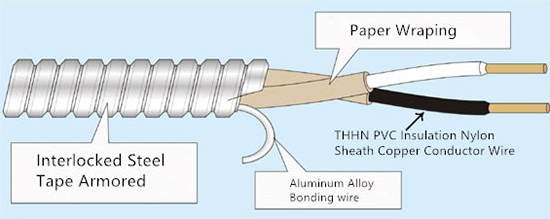
What is ac cable used for?
AC armored cable is a highly versatile and widely applicable element in electrical wiring infrastructure. Its broad range of applications and utility make it an indispensable component across various sectors. In addition, it is common in a variety of indoor and outdoor cable using scenes. For example, here are the different areas in which ac power cables have shown outstanding performance:
- In residential settings, Type AC cable shines in its ability to safely wire homes. Its use ranges from connecting household appliances and lighting fixtures to powering up home entertainment systems, ensuring a secure and durable electrical infrastructure that withstands daily demands and potential hazards, such as rodent damage or physical impacts.
- Commercial spaces, such as office buildings and retail stores, rely on AC cable for its robust protection and flexibility. It’s instrumental in lighting installations, powering heavy-duty electrical equipment, and supporting IT infrastructure, safeguarding decisive systems against physical damage while meeting rigorous safety standards.
- In light industrial environments, like warehouses and small factories, AC cable facilitates reliable electrical connections for machinery, control circuits, and safety lighting. Its armored design and grounding capabilities are invaluable in some settings, offering enhanced protection against the risk of electrical faults and ensuring continuous operation.
Next, let’s turn our attention to another similar cable type in regards to understanding what MC cables are and their specific uses in the industry.
What is mc electrical cable?
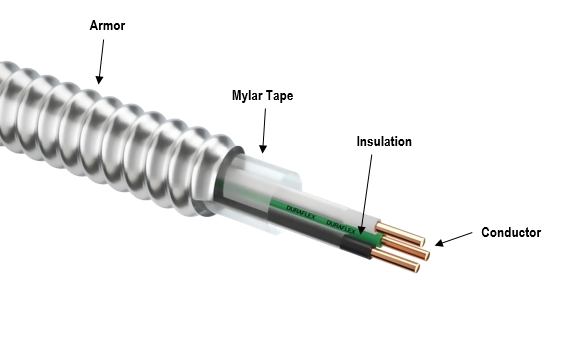
Metal clad cables are composed of one or more insulated electrical conductors, all of which are enveloped within a robust metal sheath. Its design can offer protection against a variety of environmental hazards, mechanical stresses, and potential electrical interference, thereby keeping a higher level of safety and reliability in electrical installations. Among the commonly utilized sizes within the industry are the 12 gauge and 14 gauge cables, each selected based on specific application requirements and regulatory compliance standards.
Also read more about MC cable: MC Cable Practical Insights:Types, Uses&Comparisons
MC electrical cables deliver optimal performance in a variety of areas including infrastructure, commercial and outdoor lighting. However we should also be aware that there are limitations to the use of Type MC cables in certain situations: on the one hand when subjected to physical damage. On the other hand, when exposed to any destructive corrosive conditions, unless the metallic sheath or armor is resistant to these conditions or protected by materials.
What’s the difference between AC and MC cable?
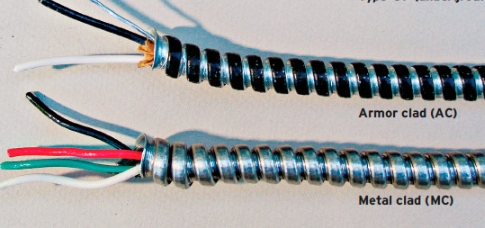
In the electrical installations, choosing between AC and MC Cable can be as important as selecting the foundation for a building. Yet they differ slightly in terms of features, benefits and applications. Understanding the distinct characteristics of type ac vs mc cables aids in selecting the appropriate wiring solution.
When comparing the differences between AC (Armored Cable) and MC (Metal-Clad) cables, a notable distinction lies in their cable construction and grounding methods.
- AC cables are composed of insulated conductors that are wrapped in kraft paper. The conductors are then placed inside a flexible metal casing that is designed to serve as a grounding conductor. To ensure continuity of the cable armor, a small conductor is placed inside the metal casing to act as a bonding strap. It is important to note that this bonding strap should not be inserted into the panel or box to which the AC cable is connected. For grounding, the AC cable relies on its metal jacket and a thin strip or wire.
- MC cables feature insulated wires wrapped in adhesive tape, along with a separate insulated ground wire. This design eliminates the need for splice tape and provides a full-size insulated ground wire on the current-carrying conductor. The use of a standardized grounding method can offer significant benefits for installations requiring a consistent and clear path to ground.
We can also learn more about how ac cable wiring can be safely prepared with the following video:
In terms of application and use, the two types of cables present different priorities and advantages when put to use.
- We typically use AC cables in residential and commercial environments where there is a specific need for grounding through armor. Their flexibility is a major advantage, especially in projects where cables need to be routed through tight spaces or around various obstacles. However, ac cables are not suitable for wet locations because they do not have a pvc jacket. It is a limiting factor that we take into account when planning.
- MC cable also performs better in outdoor applications when it is equipped with proper sheathing and insulation. It provides us with a safer and more durable alternative.
So is there a difference in cost price between the two types of cables? And which one is the optimal choice?
- Generally speaking, MC cables are usually more cost effective than AC cables due to their superior durability and protection from wet environments, making MC cables an better choice for industrial environments and outdoor applications in particular.
- For indoor electrical systems that are less likely to be subjected to physical damage or extreme climatic influences, it provides adequate protection and performance to meet demand. Typically, AC cable is the majority choice for its more economical advantages and ease of installation.
AC VS MC Cable Conclusion
With the above understanding of the different emphasis on armored cable vs metal clad cable in terms of structure and application, we are able to choose cables that are more compatible to specific projects according to our needs. In light of this, consulting with experienced professionals and sourcing from trusted manufacturers becomes paramount. Thus, For expert guidance and high-quality solutions, turning to a reputable top 10 china cable manufacturers like ZW Cable is advisable.


